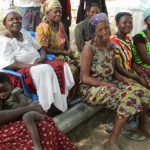It is common for developing country governments or development partners to identify priority agricultural subsectors or value chains that receive targeted support to achieve policy objectives. In Ghana, for example, the new administration has prioritized the maize, rice, sorghum, soya and vegetables value chains under its Planting for Food and Jobs initiative. But how are […]
Options for reducing poverty in remote areas of northern Ghana: Can maize contract farming schemes help?
Contract farming (CF) arrangements are written or oral agreements between farmers and CF scheme operators, where farmers commit to produce a certain commodity and operators commit to buying the commodity. These agreements typically contain further specifications such as the quantity, quality or price of the commodity, and can come with the provision of inputs, credits […]
Mothers’ Non-Farm Entrepreneurship and Child Secondary Education in Rural Ghana
New discussion paper provides an empirical insight into the impact of mothers’ non-farm entrepreneurship on the propensity of child secondary school enrollment.
Changing gender roles in agriculture? What does 20 years of data in Ghana say?
At a time when donors and governments are increasing efforts to mainstream gender in agriculture, it is critical to revisit long-standing wisdom about gender inequalities in agriculture to be able to more efficiently design and evaluate policy interventions. Many stylized facts about women in agriculture have been repeated for decades. Did nothing really change? Is […]
- « Previous Page
- 1
- …
- 4
- 5
- 6



